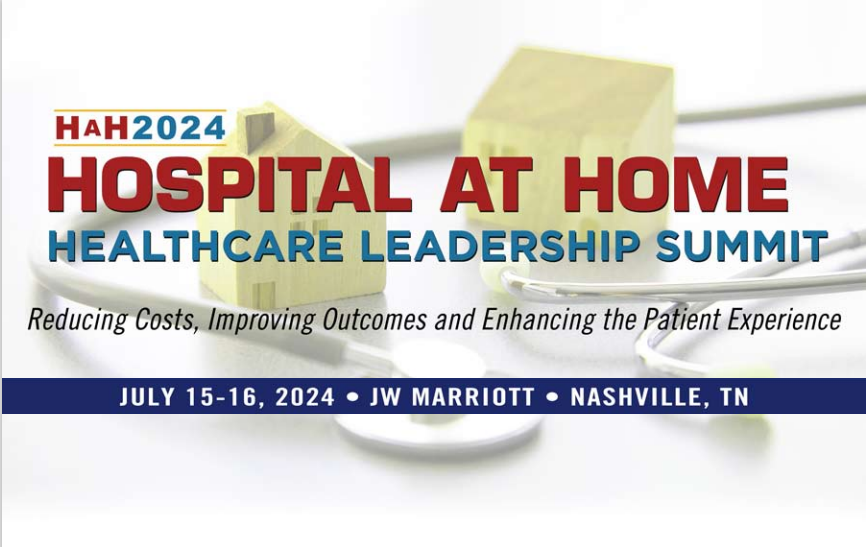2024 Hospital at Home Healthcare Leadership Summit
Reducing Costs, Improving Outcomes and Enhancing the Patient Experience
July 15-16, 2024 * JW Marriott * Nashville, TN
2024 Hospital at Home Healthcare Leadership Summit
Day(s)
:
Hour(s)
:
Minute(s)
:
Second(s)
Today, with backing from federal agencies, hospitals, health systems and healthcare organizations are continuing to rely on hospital at home programs even though in-person care has largely resumed. This is mainly due to the patient care benefits afforded by the hospital-at-home model and its potential to help rein in costs. The hospital at home concept has allowed hospital systems to build their own unique villages. Models can vary from providing full in-home care, partial in-home care and full virtual care.
This conference will help you navigate these uncharted waters and successfully delivering healthcare at home. Learn from innovative leaders that are successfully delivering hospital at home programs across their networks. Sessions will tackle some of the most pressing issues impacting existing portfolios of patient-centered home care and cover subjects that are top of mind for today’s leaders considering new strategies for acute-level home healthcare delivery. Topics to be presented will include what staffing resources are needed to run a hospital at home program, the big-picture view of the current state of the hospital at home model and where experts believe the care-delivery model is going, and opportunities to better serve an aging population and meet patients’ preferences, and more.
Who Should Attend?
- Chief Medical Officer
- Chief Operating Officer
- Nursing Director
- Chief Transformation Officer
- Information Technology
- Home Hospital
- Physicians
- Clinical
- Operations Director
- Population Health
- Innovation
- Telehealth
- Remote Patient
- Acute Care
- Geriatric Care
- Patient Experience
- Diagnostic Services
- Human Resources
- Transformation
- Innovation
- Healthcare Payers
Also of interest to Vendors/Consultants/Service Providers
Conference Agenda
Day One - Monday, July 15, 2024
7:15am – 8:00am
Conference Registration & Networking Breakfast
8:00am – 8:10am
Chairperson’s Opening Remarks
8:15am – 9:00am
Is Your Organization Ready for Hospital at Home?
Organizations seeking to adopt innovative care models often need to develop new systems and roles, while overcoming resistance to change. To successfully implement a hospital at home, you will need to ensure that the conditions are right and that needed resources are readily available. Topics to be discussed will include:
– Is your health system experiencing problems from a lack of hospital capacity?
– Does your health system have established home healthcare delivery capabilities?
– Do you have physicians with the interest and ability to care for patients in the home environment?
– Does your health system experience a large volume of Medicare admissions for common problems?
– Does your institution view itself as an innovator in developing and implementing new models or systems of care?
Jonathan Kelly, DO
Medical Director, Home Hospital Program
NYU Langone Hospital- Long Island
9:00am – 9:45am
MassHealth’s (Massachusetts Medicaid) Experience with Hospital at Home
We will share how Massachusetts Medicaid implemented its hospital at home program in collaboration with our health system partners since November 2020.
Jatin Dave, MBBS, MPH, FACP
Chief Medical Officer
MassHealth
9:45am – 10:15am
Networking & Refreshments Break
10:15am – 11:00am
The Benefit of Collaborative Partnerships and Technology to Advance Transitional Care from Hospital to Home
Hospitals, home health agencies and physicians are partnering in models that offer true, transformative pathways, including the use of technology, for a strengthened healthcare system. Patients are overwhelmingly benefited by collaborative, coordinated and integrated care across providers, which makes the system stronger and more capable, optimizes resources and efficiency, and most importantly, maintains the patient at center-focus. This session will explore these models of engagement and specifically, how a special needs certified home health agency joined forces with providers across the healthcare continuum to provide high quality, patient-centered care.
Jessica Shaw, MS, CCC-SLP
Director of Telehealth
St. Mary’s Healthcare System for Children
Elvira Fardella-Roveto, RN, FNP-BC
VP, Administrator and Director of Professional Services, St. Mary’s Home Care
St. Mary’s Healthcare System for Children
11:00am – 11:45am
Launching HaH: Barriers and Keys to Success
HaH has had a number of false starts in Canada. Four years ago, the city of Victoria, British Columbia launched a HaH program that continues to grow and inspire the creation of other HaH programs in British Columbia. Dr Shauna Tierney, one of the Founders of Victoria’s HaH program and current Medical Lead, reflects upon barriers and success factors to creating a HaH program.
Shauna Tierney, MD
Family Medicine Hospitalist, Medical Lead
Island Health Hospital at Home
11:45am – 12:30pm
Home is Where the Hospital Is
No one wants to stay in an emergency room or a hospital bed any longer than absolutely necessary. But heading home too soon can make patients feel like they’re walking a tightrope without a net below them. Now, a growing number of hospitals have started offering services that bridge this gap. A few of them started before 2020, but the pressures of the pandemic, and new flexibility from Medicare and health insurance companies, have prompted a massive acceleration in the last few years. Whether they’re called post-acute care at home, hospital at home, completion at home, observation at home, patient monitoring at home, or other names, these new offerings aim to help patients safely avoid or shorten a hospital stay. This session will explore why this model is being adopted in health systems across the country, along with the program’s benefits.
Michael J. Maniaci, MD
Medical Director
Mayo Clinic
12:30pm – 1:30pm
Luncheon
1:30pm – 2:15pm
Hospital at Home: The Schrodinger’s Cat of Medication Management
By definition, the status of a patient admitted to an acute hospital at-home unit is inpatient. However, the traditional strategies for medication management within hospital walls are only sometimes feasible in the patient’s home. Alternatively, the strategies for medication management in the ambulatory setting may not address the acute needs of a patient who meets hospital admission criteria. Learn how one hospital-at-home program has combined best practices from inpatient and ambulatory settings to adapt its pharmacist-led collaborative practice agreements (CPAs) for therapies such as vancomycin, anticoagulation, diabetes management, and total parenteral nutrition (TPN) to optimize medication management outside hospital walls.
Brooke Miller, PharmD, BCACP
Team Lead, Clinical Pharmacist- Hospital Level Care at Home
Intermountain Health, Canyons Region
Intermountain Homecare & Hospice Pharmacy
2:15pm – 3:15pm
Panel: Building your Dream Team: Strategies for Staffing your Hospital at Home Program
The special nature of the hospital at home model requires staff with a high degree of independence for working outside of the brick-and-mortar hospital, flexibility in the face of ambiguity, and attentiveness to patient needs. As such, not all clinicians are fit for delivering home-based acute care. Questions about utilizing providers and services from external vendors also must be addressed strategically in any hospital at home program. In this session, hospital at home experts will address the issues crucial to successfully staffing your hospital at home program.
Moderator:
Robert Moskowitz, MD, MBA
Chief Medical Officer
Contessa Health
Panelists:
Teresa Thacker, BSN, MBHA
Clinical Manager / Advanced Care at Home
UNC Health
Shauna Tierney, MD
Family Medicine Hospitalist, Medical Lead
Island Health Hospital at Home
3:15pm – 3:45pm
Networking & Refreshments Break
3:45pm – 4:30pm
Building a Digital Platform for Your Hospital at Home Program
In this session we’ll explore technology decisions that hospital-at-home programs must make and how they will affect program efficacy and patient care. Topics to be discussed will include telemedicine requirements, team communications, smart home applications, patient access and equity.
Darrell Dow
Corporate Director, Digital Solutions and Analytics
ChristianaCare
4:30pm – 5:15pm
Direct Admit to Hospital at Home from Urgent Care Covering a Large Geographical Area
Is there a way to directly admit patients from Urgent Care into a Hospital at Home unit without them ever stepping foot into an ER? YES! A big focus of our Hospital at Home program is to save money while freeing up hospital beds. By assessing patients while they are in urgent care, consulting an Emergency Medicine provider, determining dx and developing treatment care plans, then directly admitting them onto our virtual Hospital at Home unit by our hospitalist just as if they were in the brick-and-mortar facility, we not only save money and beds, we save time. We decrease the cost for patients and insurances, by patients not being physically in the hospital, we save costs of an ER visit, we keep ER and IP beds open and available, patients and their families don’t need to spend 3-4 hours in an ER after being at Urgent Care waiting for a dx and ultimately an admission, and we get patients home, where they want to be.
Raeme Sendzik, MSW, LCSW
Hospital Level of Care at Home Program Operations Manager
Intermountain Healthcare
Cindy Bryant
Hospital Level Care at Home Educator
Intermountain Healthcare
5:15pm
End of Day One
Day Two – Tuesday, July 16, 2024
7:15am – 8:00am
Networking Breakfast
8:00am – 8:15am
Chairperson’s Recap
8:15am – 9:00am
Developing Pharmacy Services for a Hospital at Home Program
Medication management is a critical component to a successfully implemented hospital at home program. However, best practices in medication management in hospital at home programs are yet to be established. Many challenges are unique to this evolving acute care model including: provider ordering to medication administration, operational realities regarding delivery and storage of medications in the patient’s homes, as well as the lack of 24-hour on-site nursing care in the home setting. This session will explore many of these challenges and provide some unique strategies developed and deployed by one hospital-at-home program to address the barriers surrounding medication management in the virtual home.
Teresa Thacker, BSN, MBHA
Clinical Manager / Advanced Care at Home
UNC Health
9:00am – 9:45am
Design your Hospital at Home Program Intentionally to Tell Your Story:
Building a Hospital at Home program is challenging enough. But you’ll want to be thoughtful up front about how you design your systems so you can effectively understand your outcomes. There are many stakeholders for the Hospital at Home, like the CEO / Hospital president, the CFO, the medical staff and nursing staff, the DEIB Officer, Compliance, Legal, Risk, your local legislators, the community at large, and more. Your ability to describe your outcomes in every area, by turning clinical encounters into data, dashboards, and stories may determine the fate of your program. We will review one hospital’s specific approaches to synthesizing our experiences in a way that tells a compelling story of the potential of this transformative care model.
Eric Alper, MD
SVP, Chief Quality Officer / Chief Clinical Informatics Officer
UMass Memorial Health Care
9:45am – 10:15am
Networking & Refreshments Break
10:15am – 11:00am
It’s Not Just for “Respiratory Illness Season”: A Discussion Regarding the Journey to Deepen the Impact of Your Hospital at Home Program
Each Hospital at Home program is charged with integrating a new model of care into the inpatient practice of the hospital it serves. Within this construct there are variations in practice patterns, culture and clinical services which confer necessary differences in the clinical conditions which can be served in any hospital or system’s Hospital at Home program. However, we can learn from each other regarding less traditional patient populations. As we do this, we may need to challenge the assumption that Hospital at Home confers significant cost savings and instead focus on alternative person-centered outcomes (some of which are harder to measure than cost).
Sue Stempek
VP of Hospital at Home
Beth Israel Lahey Health
11:00am – 11:45am
Establishing a Remote Patient Monitoring Strategy for the Hospital at Home Setting
Remote patient monitoring devices empower patients to be more engaged and knowledgeable about their conditions and treatment. This session will examine how remote patient monitoring can deepen ties with patients and improve outcomes by exchanging health data via remote patient monitoring technologies. This session will examine equipment training programs and logistical barriers when it comes to the hospital at home setting.
Sridevi Rajeeve, MD
Assistant Attending, Myeloma & Cellular Therapy Services
Memorial Sloan-Kettering Cancer Center
11:45am – 12:30pm
Home-Based Palliative Care: A Paradigm Shift from Hospital to Home-Based Care
Home-Based Palliative Care (HBPC) has emerged as a crucial component in the continuum of care for individuals with advancing illnesses. The primary objective of HBPC is to improve the quality of life for patients facing chronic and/or life-limiting illnesses while providing support for their families and friends in the familiar and comforting environment of their own home. Numerous studies have demonstrated the effectiveness of HBPC in achieving this goal through various outcome measures, including symptom management, patient and family satisfaction, and cost-effectiveness. By providing comprehensive symptom assessment and management by interdisciplinary teams, HBPC ensures that patients receive tailored interventions to alleviate distressing symptoms such as pain, dyspnea, and fatigue. This proactive approach not only enhances symptom relief but also empowers patients to maintain a sense of control over their care, thereby improving their overall well-being. Unfortunately, barriers to HBPC present significant challenges in delivering optimal care to palliative care patients. Barriers such as geographical limitations, healthcare infrastructure disparities, financial constraints and caregiver burden contribute to challenges in maintaining HBPC services at home. Addressing the benefits and barriers is essential to ensure equitable access to high-quality Home-Based Palliative Care.
Kristine Kowalski, RN, BSN, MBA, PHN, MA, CHPCA
Palliative Care Coordinator/Administrator
St. Joseph’s Hospice
12:30pm
Conference Concludes
Workshop - Tuesday, July 16, 2024
12:45pm – 2:45pm
Workshop: Overcoming Challenges to Widespread Implementation of Hospital at Home Programs
The hospital at home model moves patient care away from brick-and-mortar hospitals and into the comfort of their home. The model is designed to lower costs and improve patient experiences, but also has the potential to expand care delivery for other sectors of the healthcare industry as well. However, as the hospital at home market increases and more key players are drawn to the new care delivery model, there are still challenges that limit the widespread implementation of hospital at home programs. This session will explore the challenges facing the hospital at home model and how the industry can overcome them.
Kelsie Ferstl, MHA
Associate Director in Healthcare Strategy
Guidehouse
Susie Smith, PhD, RN, NE-BC
Associate Director in Healthcare Strategy
Guidehouse
Featured Speakers
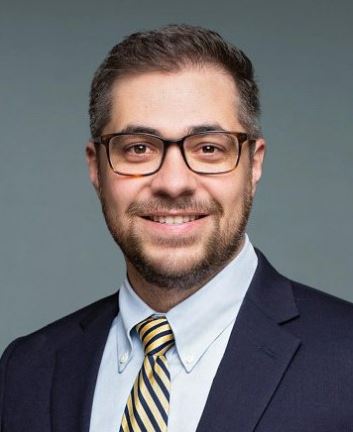
Jonathan Kelly, DO
Medical Director, Home Hospital Program
NYU Langone Hospital- Long Island
Jatin Dave, MBBS, MPH, FACP
Chief Medical Officer
MassHealth
Jessica Shaw, MS, CCC-SLP
Director of Telehealth
St. Mary’s Healthcare System for Children
Elvira Fardella-Roveto, RN, FNP-BC
VP, Administrator and Director of Professional Services, St. Mary’s Home Care
St. Mary’s Healthcare System for Children
Shauna Tierney, MD
Family Medicine Hospitalist, Medical Lead
Island Health Hospital at Home
Michael J. Maniaci, MD
Medical Director
Mayo Clinic
Brooke Miller, PharmD, BCACP
Team Lead, Clinical Pharmacist - Hospital Level Care at Home
Intermountain Homecare & Hospice Pharmacy

Darrell Dow
Corporate Director, Digital Solutions and Analytics
ChristianaCare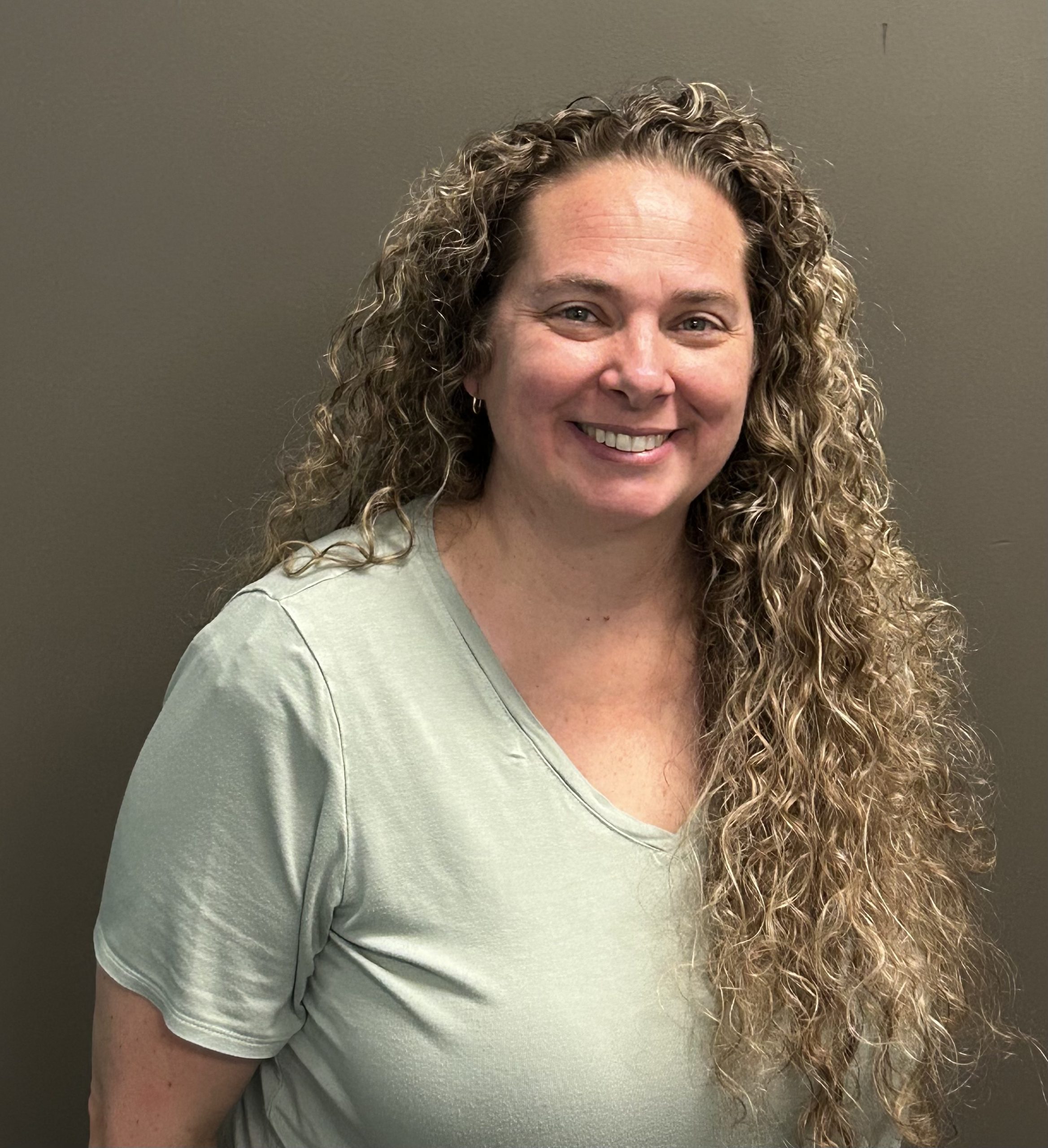
Raeme Sendzik, MSW, LCSW
Hospital Level of Care at Home Program Operations Manager
Intermountain Healthcare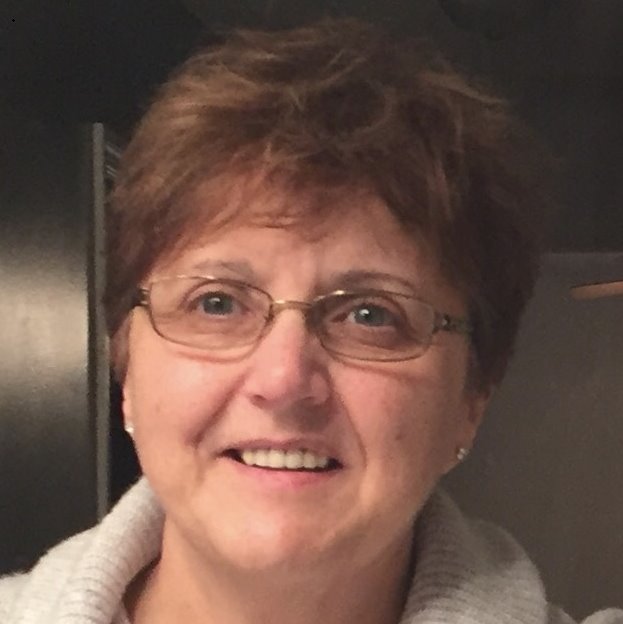
Teresa Thacker, BSN, MBHA
Clinical Manager / Advanced Care at Home
UNC Health
Kristine Kowalski, RN, BSN, MBA, PHN, MA, CHPCA
Palliative Care Coordinator/Administrator
St. Joseph’s Hospice
Sue Stempek
VP of Hospital at Home
Beth Israel Lahey Health

Sridevi Rajeeve, MD
Assistant Attending, Myeloma & Cellular Therapy Services
Memorial Sloan-Kettering Cancer Center
Robert Moskowitz, MD, MBA
Chief Medical Officer
Contessa Health

Eric Alper MD
SVP, Chief Quality Officer / Chief Clinical Informatics Officer
UMass Memorial Health Care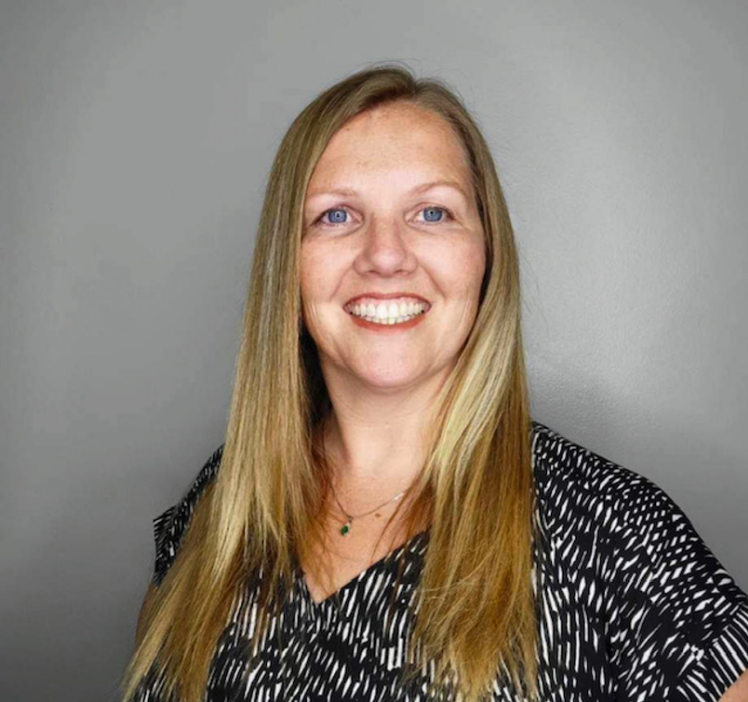
Cindy Bryant
Hospital Level Care at Home Educator
Intermountain Healthcare

Kelsie Ferstl, MHA
Associate Director in Healthcare Strategy
Guidehouse
Venue
201 8th Avenue South
Nashville, TN 37203
615-291-8600
Mention BRI Network to get the Discounted Rate of $299/night or use the link below to make reservations:
Sponsors and Exhibitors
SUPPORTING PARTNER 
Partnering with 11 health systems and connected with 43 hospitals, Contessa is the nation’s leading provider of comprehensive care at home, bringing hospital-level medical treatment into the comfort of patients’ homes. Our evidence-based care models include Recovery Care at Home, Rehabilitation Care at Home and Palliative Care at Home.
EXHIBITOR
![]()
Vivalink offers a Biometrics Data Platform for remote patient monitoring in healthcare and clinical trials. It combines medical wearable sensors and advanced cloud data services to continuously capture patient vitals and biometrics in virtually any remote setting. Applications include ambulatory cardiac monitoring, neutropenic fever monitoring, and pulmonary hypertension assessment
FAQ
Are there group discounts available?
- Yes – Register a group of 3 or more at the same time and receive an additional 10% off the registration fee
Are there discounts for Non-Profit/Government Organizations?
- Yes – please call us at 800-743-8490 for special pricing
What is the cancellation policy?
- Cancellations received 4 weeks prior to the event will receive a refund minus the administration fee of $225. Cancellation received less than 4 weeks prior to the event will receive a credit to a future event valid for one year.
Can the registration be transferred to a colleague?
- Yes – please email us in writing at info@brinetwork.com with the colleague’s name and title
Where can I find information on the venue/accommodations?
- Along with your registration receipt you will receive information on how to make your hotel reservations. You can also visit individual event page for specific hotel information. The conference fee does not include the cost of accommodations.
What is the suggested dress code?
- Business casual. Meeting rooms can sometimes be cold so we recommend a sweater or light jacket
Request Brochure
Register Your Team Today!
Register Now
Register by April 26th & Save an Additional $200 off the Registration Fee – Mention Promo Code WB200!

